-
Product Name
Anti-PCNA (9C9) Mouse antibody
- Documents
-
Description
PCNA (9C9) Mouse monoclonal antibody
-
Tested applications
WB, ICC/IF, IHC-P
-
Species reactivity
Human, Rat, Mouse
-
Isotype
Mouse IgG1
-
Preparation
Antigen: Synthetic Peptide of PCNA
-
Clonality
Monoclonal
-
Formulation
PBS, pH 7.4, containing 0.02% sodium azide as Preservative and 50% Glycerol.
-
Storage instructions
Store at 4°C short term. Store at -20°C long term. Avoid freeze / thaw cycle.
-
Applications
WB: 1/5000
IHC: 1/200
IF: 1/200
-
Validations
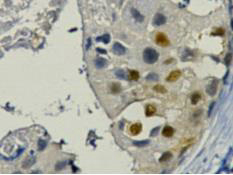
IHC staining of Human breast cancer tissue paraffin-embedded, diluted at 1:200
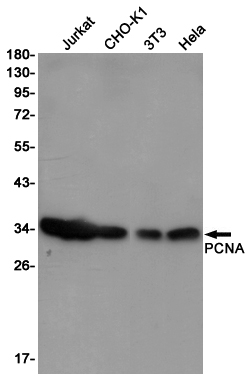
Western blot detection of PCNA in Jurkat,CHO-K1,3T3,Hela cell lysates using PCNA (9C9) Mouse mAb(1:1000 diluted).Predicted band size:29KDa.Observed band size:34KDa.
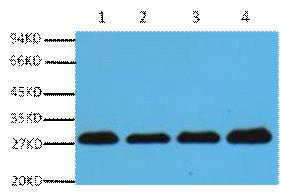
Western blot analysis of Hela (1), Rat brain (2), NIH 3T3 (3), 293T (4), diluted at 1:5000.
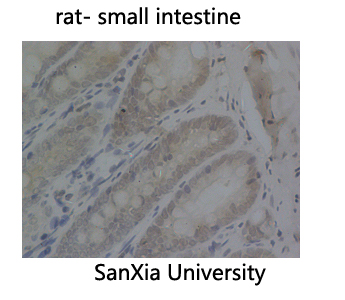
The picture was kindly provided by our customer
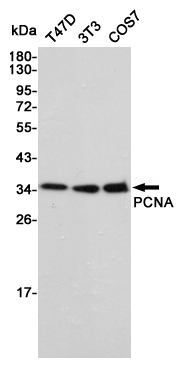
Western blot detection of PCNA in T47D,3T3 and COS7 cell lysates using PCNA mouse mAb (1:1000 diluted).Predicted band size:36KDa.Observed band size:36KDa.
-
Background
Swiss-Prot Acc.P12004.Auxiliary protein of DNA polymerase delta and is involved in the control of eukaryotic DNA replication by increasing the polymerase's processibility during elongation of the leading strand. Induces a robust stimulatory effect on the 3'-5' exonuclease and 3'-phosphodiesterase, but not apurinic-apyrimidinic (AP) endonuclease, APEX2 activities. Has to be loaded onto DNA in order to be able to stimulate APEX2. Plays a key role in DNA damage response (DDR) by being conveniently positioned at the replication fork to coordinate DNA replication with DNA repair and DNA damage tolerance pathways (PubMed:24939902). Acts as a loading platform to recruit DDR proteins that allow completion of DNA replication after DNA damage and promote postreplication repair: Monoubiquitinated PCNA leads to recruitment of translesion (TLS) polymerases, while 'Lys-63'-linked polyubiquitination of PCNA is involved in error-free pathway and employs recombination mechanisms to synthesize across the lesion.
Related Products / Services
Please note: All products are "FOR RESEARCH USE ONLY AND ARE NOT INTENDED FOR DIAGNOSTIC OR THERAPEUTIC USE"
